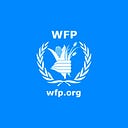Fishing in the desert: Unlocking Lake Turkana’s potential in the face of a changing climate
As climate change ravages the land and livestock in northwestern Kenya, some pastoralists are turning to fishing to survive. Lake Turkana, the world’s largest desert lake, holds much promise for these communities — but its resources must be managed sustainably.
By Lisa Murray
Since losing most of his livestock in a recent drought, herder Angelech Losoro has traded the parched lands of northwestern Kenya for the waters of nearby Lake Turkana, where he now makes a living catching fish.
Between 2021 and 2023, Kenya faced its worst drought in 40 years. In Turkana County alone, more than 200,000 pastoralists like Losoro abandoned their way of life. “I said to myself, instead of dying in this place, let me go to (the lake) and give it a shot,” he says.
Lake Turkana, the world’s largest permanent desert lake and a UNESCO World Heritage site, offers hope. It produced 17,300 metric tonnes of fish in recent years, and could produce considerably more, according to a recent study by the Kenya Marine and Fisheries Research Institute commissioned by the United Nations World Food Programme (WFP) and coordinated by UNESCO.
However, challenges remain. As the number of pastoralists switching to fishing climbs, competition for dwindling resources could lead to conflicts between communities. Fishers also face difficulties in transporting their catch, which perishes quickly, to potential customers.
WFP and UNESCO, in collaboration with the Marsabit and Turkana County Governments, are launching a new programme to sustainably unlock the lake’s economic potential for those living along its shores.
The five-year programme, financed by the Kingdom of the Netherlands with additional funding from the German Federal Ministry of Economic Cooperation and Development, supports the entire value chain, from lake to plate.
“We need to ensure that every family in this community benefits from this project, not just in the short term, but for generations to come,” says Louise Haxthausen, Director of UNESCO’s Regional Office for Eastern Africa. “By doing so, we can create a sustainable future for Lake Turkana and its people.”
This starts with ensuring the lake remains healthy, by promoting sustainable fishing practices and managing water resources effectively. UNESCO’s scientific and technical expertise is essential in this regard.
For instance, to better understand fish stocks, UNESCO is gathering data on catches and fish biomass through surveys repeated over several years. Initial findings have revealed the presence of large amounts of small pelagic fish — which are both nutritious and easy to process, being simply dried in the sun.
Building on WFP’s existing work around the lake’s shores, the programme will expand solar-powered cold storage and solar drying facilities, and train communities in better fish handling and processing techniques, allowing them to fetch higher prices and reach markets further away.
These are the kinds of interventions Losoro wishes for: “I would love for coolants and quality fishing nets to be brought, as it would be helpful and bring joy to fishermen — give a guarantee of sale and good fish, thus getting income.”
Claudia Ah Poe, Head of Climate, Resilience and Food Systems for WFP in Kenya, underlines, “investing in the economic potential of Lake Turkana is not just about creating jobs and adapting to climate change, it’s also about creating an enabling environment for peace and stability. When communities have access to well managed resources and opportunities, conflict is less likely to take hold.”
The programme will therefore equip fisherfolk, especially women and youth, with business development skills to access bigger markets and finance. And, recognizing that a healthy community depends on a healthy diet, the programme aims to reduce local malnutrition rates, which are among the highest in the country, by encouraging people to include more protein-rich fish in their meals.
In all these efforts, cooperation is key — because ambitious goals cannot be achieved by acting alone. The WFP, UNESCO and the Marsabit and Turkana County Governments will therefore collaborate closely with development partners, the private sector and local communities. In this way, the programme aims to unlock the true potential of Lake Turkana — and transform local lives and livelihoods in the long term.
In Losoro’s words, “this would bring a positive impact to the community through fish business, thereby improving our livelihoods.”
The Lake Turkana National Parks site was inscribed on the World Heritage List in 1997. It has been on the List of World Heritage in Danger since 2018.
